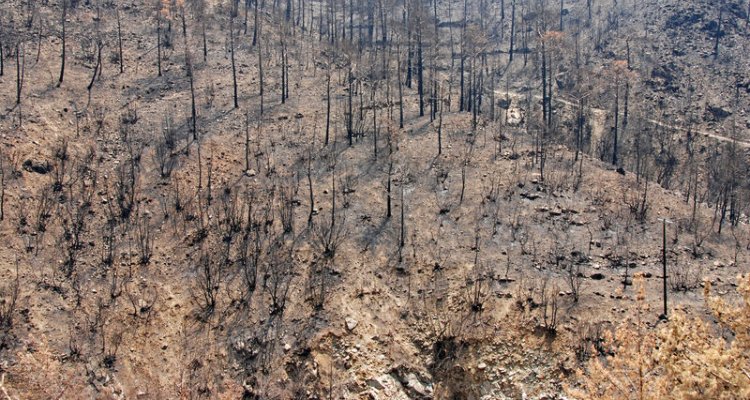
Project
Spatial-temporal effects of fire on soil, ash, and water quality
PhD project Abbey Marcotte as part of the European Union funded PyroLife initiative
Fire activity has increased in Europe and globally in recent decades, and is expected to increase in frequency and severity in the future. Such increases in fire activity, as well as the cumulative environmental impacts – for example vegetation removal and alteration of soil properties – pose a threat to ecosystem health and drinking water supplies. A complete understanding of the timing and magnitude of post-fire soil and water quality responses remains limited. This project aims to investigate post-fire responses of soil and water quality at different scales in four case studies: the Netherlands, the United Kingdom, Portugal, and Kansas USA. Each case study represents a study at a specific spatial and temporal scale, moving from point scale investigations, to multi-catchment and time-scale investigations, to account for spatio-temporal variations amongst landscapes and water quality responses. Evaluation of post-fire responses will follow a consistent methodological approach in order to determine (i) the source of contaminants within the landscape; (ii) the landscape characteristics that control or hinder the mobilization of contaminants; and (iii) transport of contaminants to water supplies. Addressing not only the role of landscape variability, but also understanding the variability in the magnitude, timing, and duration of post-fire soil and water quality impacts is essential for safeguarding ecosystems and drinking water supplies, and also understanding the potential impact of future fire events.